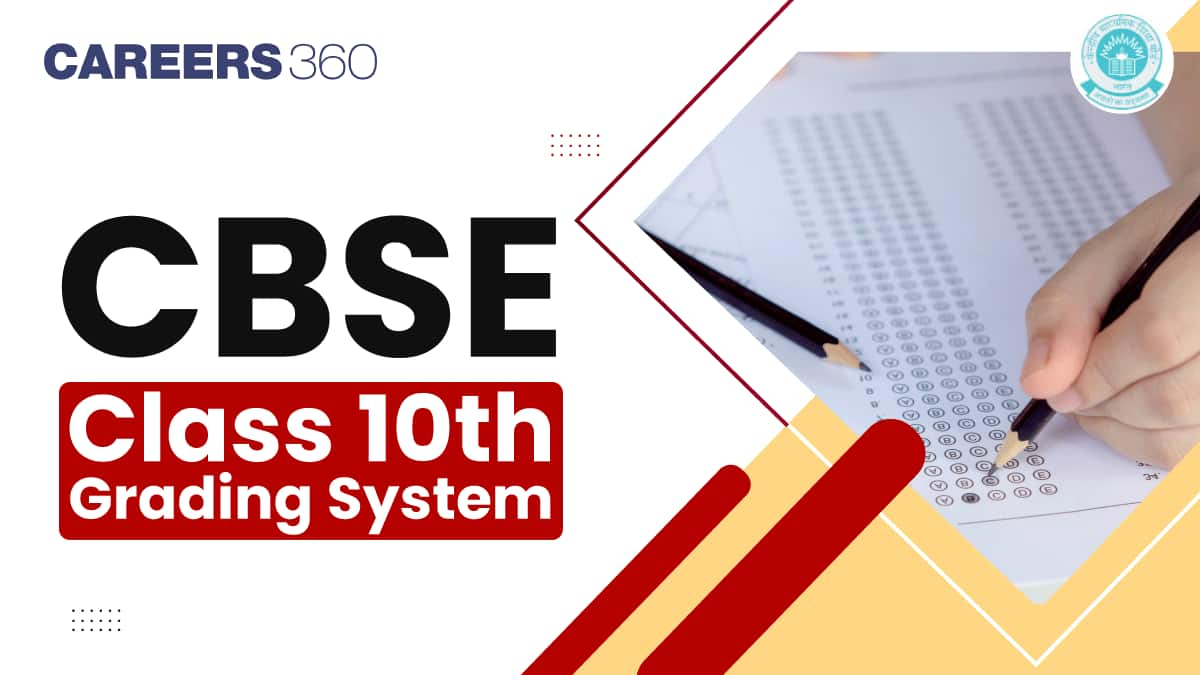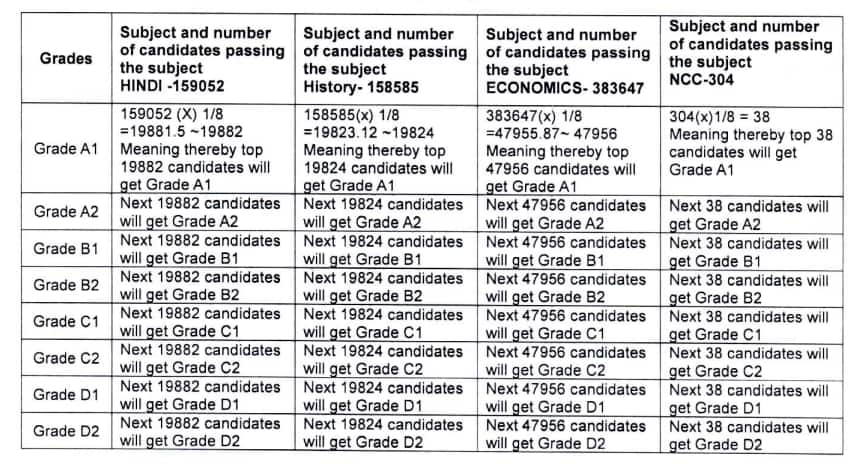CBSE Class 10 CGPA to Percentage Calculator, Marks to Grades: 10th Grading System 2025
The Central Board of Secondary Education (CBSE) awards grades to students for all subjects, along with the marks obtained by them in the CBSE 10th board exams. These CBSE Class 10 grades are assigned and reflected in the final CBSE 10th result marksheet, which is issued to the students. CBSE follows a ‘Relative Grading System,’ which is considered to be a more scientific approach than an Absolute Grading System. A relative grading system (also called grading on a curve) is a method where students’ grades are determined by comparing their performance with that of other students in the same group, rather than against a fixed standard. In this system, marks are distributed based on overall class performance. For example, only a certain percentage of students may receive the highest grade (like A or A+), regardless of how high or low the overall scores are. In this article, we have discussed the CBSE Class X grading system 2026 in detail.
This Story also Contains
- CBSE Class 10 Grading System 2026
- How are Candidates Divided into Groups to Award the CBSE X Grades?
- Details About CBSE Class X Grading Scale

CBSE Class 10 Grading System 2026
For awarding grades to students, the CBSE Board follows a rank order, as mentioned in the table below. Students who have passed the CBSE Class 10 board exams are divided into 8 groups and awarded grades. The division of group details can be checked in the table below:
CBSE Class 10th Grading System (9-Point Scale)
Grades | Particulars |
A-1 | Top 1/8th of the passed candidates |
A-2 | Next 1/8th of the passed candidates |
B-1 | Next 1/8th of the passed candidates |
B-2 | Next 1/8th of the passed candidates |
C-1 | Next 1/8th of the passed candidates |
C-2 | Next 1/8th of the passed candidates |
D-1 | Next 1/8th of the passed candidates |
D-2 | Next 1/8th of the passed candidates |
E* | *Essential Repeat |
CBSE 10th Grading System for Art Education
For Art Education in CBSE Class 10, a five-point grading system is followed. The grade allocation and its connotations are mentioned in the table below:
Grade | Connotation |
A | Exemplary |
B | Proficient |
C | Developing |
D | Emerging |
E | Beginner |
How are Candidates Divided into Groups to Award the CBSE X Grades?
The CBSE Board needs to divide students into 8 equal groups and award grades to them. Minor adjustments are made in cases of ties. The proportion of candidates is nearly the same in all groups.
Students who obtain the same score are kept in the same group and awarded the same grade.
It should be noted that any candidate who obtains equal scores in any 2 subjects may not necessarily get the same grade. This is how the Relative Grading system works.
As per CBSE’s official notice, the grading method is used in subjects where more than at least 500 candidates are declared pass.
In subjects where the number of passed students is less than 500, a different grading system is adopted by the board. The demonstration of how the CBSE Class X grading system works can be seen in the image given below:
CBSE Class 10 Grading System Hypothetical Example

Details About CBSE Class X Grading Scale
For awarding grades in CBSE 10th external exams, a 9-point grading system is used, which ranges from A1 to E grade.
For internal exams or internal assessment, a five-point grade scale is used, which ranges from A to E grades only.
For theory subjects and practical components, students get both numerical scores and grades.
How are Merit Certificates Awarded based on Grades Obtained in CBSE Class 10?
The top 0.1% of students in each subject get a merit certificate.
Certificates are not awarded for subjects where the number of students who passed the subject is less than 500.
Students who obtain the same scores in any subject are awarded certificates if there is a tie.
Also, Check:
Frequently Asked Questions (FAQs)
Students need at least a D-2 grade to be declared pass in the CBSE 10th exams.
Once CBSE 10th results are announced, students cannot change their grades.They can, however, take improvement exams and then the new score obtained may change their original grade.
A student may not necessarily get the same grade in 2 subjects even if the marks obtained are the same. This is because CBSE follows a Relative grading system and grades awarded are based on competition level in the respective subjects.
Questions related to CBSE Class 10th
On Question asked by student community
The CBSE Board Exam Class 10 English Question Paper can be downloaded in PDF format here .
Students can download the CBSE 10th Maths question paper from below.
Download CBSE Class 10 Maths Question Paper Here
The CBSE 10th maths exam follows the 80 (Theory) + 20 (Internal) format.
-
Question 1 (8 Marks):
-
(A) 4 MCQs (1 mark each).
-
(B) 4 Very Short Answer questions (1 mark
-
You can check the SST 2026 question paper here .
Hi Student
Check out the link below to get the Central Board of Secondary Education question paper 2026 Class 10 for all subjects.
Hi,
Please open the link below to find the CBSE Class 10th Maths 2026 question papers and answer key - https://school.careers360.com/boards/cbse/cbse-class-10-maths-question-paper-2026
https://school.careers360.com/boards/cbse/cbse-10th-maths-answer-key-2026
Applications for Admissions are open.
As per latest syllabus. Physics formulas, equations, & laws of class 11 & 12th chapters
JEE Main Important Chemistry formulas
Get nowAs per latest syllabus. Chemistry formulas, equations, & laws of class 11 & 12th chapters
JEE Main high scoring chapters and topics
Get nowAs per latest 2024 syllabus. Study 40% syllabus and score upto 100% marks in JEE
JEE Main Important Mathematics Formulas
Get nowAs per latest syllabus. Maths formulas, equations, & theorems of class 11 & 12th chapters
